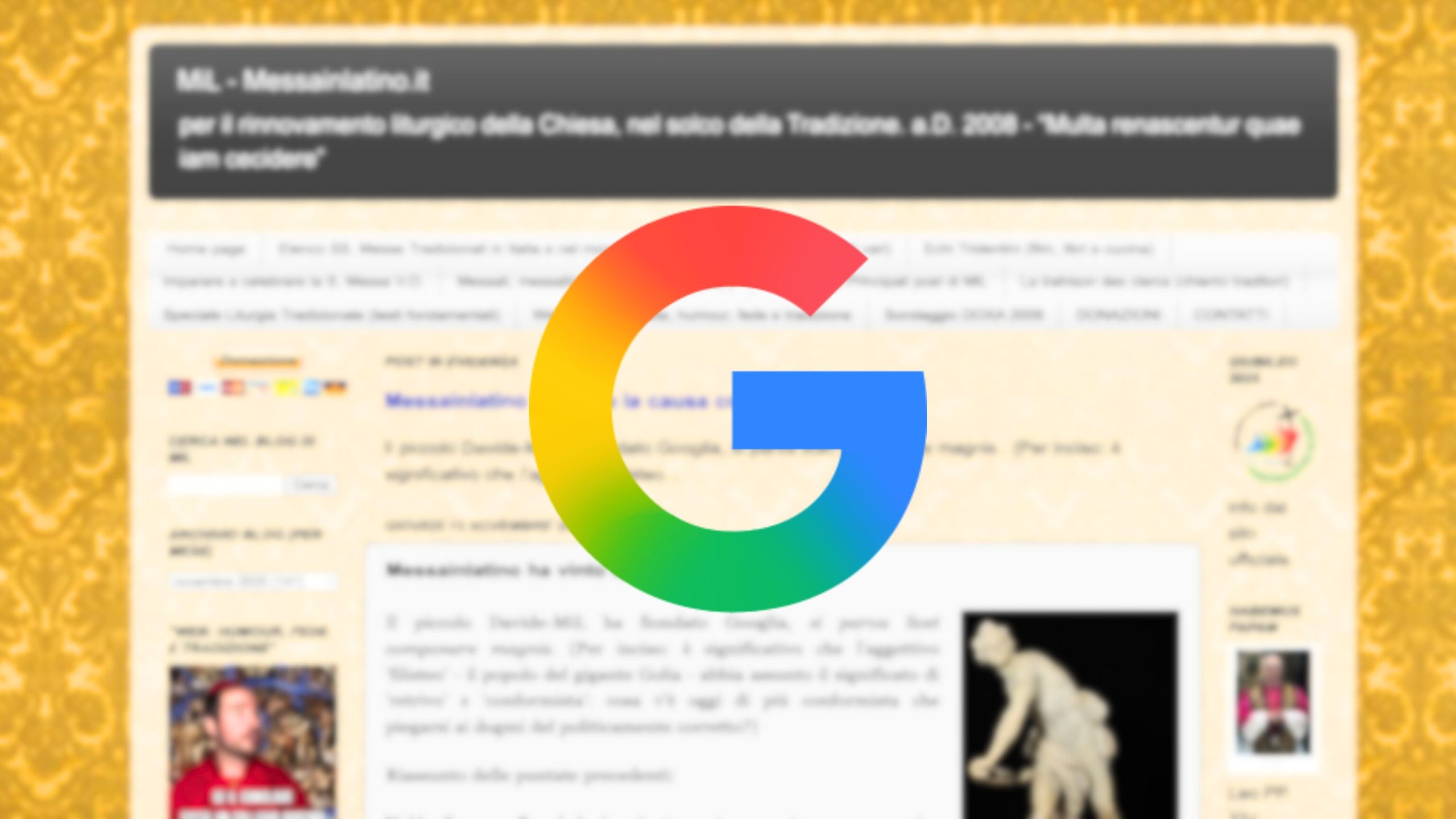Google has been compelled by the Tribunale di Imperia to restore Messainlatino.it, a major Italian Catholic website that, as you may remember, the company had abruptly taken down from its Blogger platform in July.
The ruling, issued against Google Ireland Limited, the firm’s European branch, also requires payment of approximately €7,000 (about $8,100) in court costs.
The blog’s editor, Luigi Casalini, filed legal action after Google deleted the site without warning, claiming a violation of its “hate speech” rules.
The company’s notification consisted of a short, generic email and provided no explanation or chance to appeal.
For Casalini, whose publication had accumulated over 22,000 articles since 2008 and reached around one million monthly readers, the removal appeared to be less a matter of policy enforcement and more an attempt to silence dissenting religious opinion.
Messainlatino.it was well known for covering issues surrounding traditional Catholic liturgy and had been cited by major outlets.
Following Google’s action, questions were raised in both the European Parliament and Italy’s Chamber of Deputies.
Legislators noted that the deletion “raises serious questions about the respect for freedom of expression, speech and religion” as guaranteed by Article 11 of the EU Charter of Fundamental Rights and Article 10 of the European Convention on Human Rights.
They also pointed to the Digital Services Act (DSA), which, despite being a censorship law, obliges platforms to apply their moderation policies with “due regard” for fundamental rights.
Casalini’s legal case focused on that provision. He argued that Google’s decision breached Article 14 of the DSA, which calls for a balance between policy enforcement and the user’s right to free expression.
As Casalini stated to LifeSiteNews, “Google acted in this way in violation of the Digital Services Act.”
Google responded through five lawyers based in Milan. The company claimed that an interview with Bishop Joseph Strickland, who opposed the ordination of women as deacons, violated its hate speech policy.
When the defense team countered that the post merely reported the bishop’s words and contained no discriminatory content, Google’s attorneys maintained in court documents that “it does not matter the source, more or less authoritative (bishop, Pontiff) of the post, if it violates the Policy.”
Judge De Sanctis of the Imperia Court dismissed Google’s reasoning. The court found that the company had failed to justify the deletion and had breached European laws ensuring fair access to digital services.
The ruling ordered the immediate reinstatement of the blog and described Google’s conduct as incompatible with the principles of freedom of expression recognized by EU law.
The decision highlights a central flaw within the Digital Services Act. Although the law formally instructs platforms to consider free expression, it still empowers them to remove speech unilaterally under the guise of compliance. The result is a system where large corporations can suppress lawful viewpoints with minimal oversight.
By ruling in favor of Messainlatino.it, the Italian court affirmed that private digital companies are not above the law when they interfere with constitutionally protected speech.
The case may now serve as a precedent for future disputes over online censorship in Europe, reminding regulators and corporations alike that freedom of expression must remain the foundation of the digital public space.










